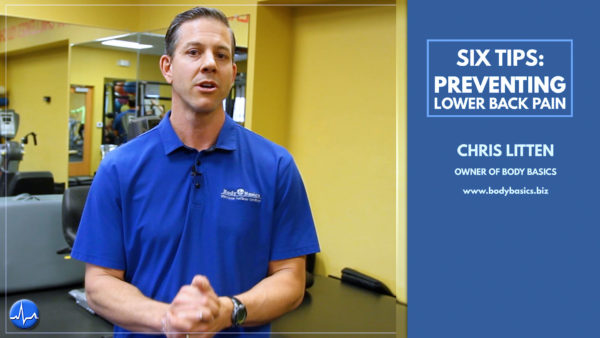Making the Connection:Hearing Loss and Cognitive Impairment in Older Adults
By: Maureen Raine
Answer the questions below to determine if you might have a hearing problem.
- Do I have a problem hearing on the telephone?
- Do I have trouble hearing when there is noise in the background?
- Is it hard for me to follow a conversation when two or more people talk at once?
- Do I have to strain to understand a conversation?
- Do many people I talk to seem to mumble (or not speak clearly)?
- Do I misunderstand what others are saying and respond inappropriately?
- Do I often ask people to repeat themselves?
- Do I have trouble understanding the speech of women and children?
- Do people complain that I turn the TV volume up too high?
- Do I hear a ringing, roaring, or hissing sound a lot?
- Do some sounds seem too loud?
If you answered yes to three or more of these questions, it’s important that you tell your doctor. Researchers at Johns Hopkins Medicine suggest that elderly people with compromised hearing are at risk of developing cognitive deficits — problems with memory and thinking — sooner than those whose hearing is intact. The results indicate a correlation between hearing problems and their association with falls and the early onset of dementia. Dr. Lin, the main researcher, found that annual rates of cognitive decline were 41 percent greater in older adults with hearing problems than in those without.
Hearing loss can sometimes lead to social isolation when people decline social invitations or avoid crowds because they have a hard time hearing what is said to them. It is thought that this loss of meaningful relationship building activities is what keeps older people from feeling engaged with others. Seniors’ cognitive health depends on exercising both body and brain and remaining socially engaged.
Another researcher, Dr. Tun theorizes about the idea of “cognitive load”. Basically, this assumes that “we only have a certain amount of cognitive resources, and if we spend a lot of those resources of processing sensory input coming in — in this case, sound — it’s going to be processed more slowly and understood and remembered less well,” she explained. Put simply, when your brain has to work hard to hear and identify meaningful speech from a jumble of sounds, “you’ll have less mental energy for higher cognitive processing,” Dr. Tun said. These experiences can be frustrating for all involved and isolating to the individual with hearing loss. The auditory system is highly complex so it is unclear if hearing loss is the cause of cognitive dysfunction or is merely related but it is definitely nothing to be ignored.
Resources:
Hearing Loss and Cognitive Decline in Older Adults
Frank R. Lin, MD, PhD
What Should Be Done About Hearing Loss?
By THE NEW YORK TIMES
Published: February 27, 2013
 Video: Hip Swing with Amber Stazenski
Video: Hip Swing with Amber Stazenski
Recipe: Butternut Squash and Kale Soup with Turkey
Ingredients:
- 1 pound lean ground turkey
- 1 onion, chopped
- 2 red bell peppers, cut into ½-inch pieces
- 1 medium butternut squash, peeled, seeded, cut into ½-¾ -inch cubes (about 3 cups/12 ounces)
- freshly ground black pepper
- 4 cups chicken or vegetable broth or more as needed
- 2 15-oz cans cannellini or great northern beans, drained and rinsed
- 1 bunch of kale roughly chopped
- pinch of parmesan cheese
Directions:
Saute ground turkey and onion in a heavy large pot over medium heat. Add the bell pepper and sauté until the meat is cooked through, about 10 minutes. Add the squash. Sprinkle with black pepper, and sauté about 5 minutes to heat the squash.
Add the broth and beans to the pot, increase the heat and bring to a boil. Reduce the heat, cover partially, and simmer until the squash is tender and sweet, about 25 minutes. Add the kale and simmer until wilted and just tender, about 5 minutes. Season to taste with black pepper. Thin the soup with more broth or water if desired.
Client Spotlight
 Sandy Criss
Sandy Criss
Sandy Criss has seen great success through her perseverance. Sandy began her fitness journey with BodyBasics after being referred by a close friend of 42 years who was already training there. The surgical insertion of 9 different stints and a noticeable decline in energy and ability to do stuff around her house was holding her back from living the life she wanted to live. She is currently a committed participant in the 2 p.m. class. Her dedication of 3 hours each week has put her in a position to be able to complete 20 minutes consistently on the treadmill! Impressive considering at the start of her program she was only able to do 5 minutes! Despite her significant cardiovascular issues, Sandy continues to demonstrate incredible resolve. Sandy will not give up on her health without a fight and our hearts go out to her in support of this. Her heart health is continually improving with each and every session as is her balance and total body strength. Keep up the fight Sandy!
Beat Cancer Boot Camp – March, 2013

A fun time was had by all during this year’s 5K and obstacle course. Plenty of time to train and be on next year’s BodyBasics team!
Congratulations to Pat Schumann, Trudi Wieduwilt, and Mike Haas for completing the Arizona Distance Classic.

 Sandy Criss
Sandy Criss